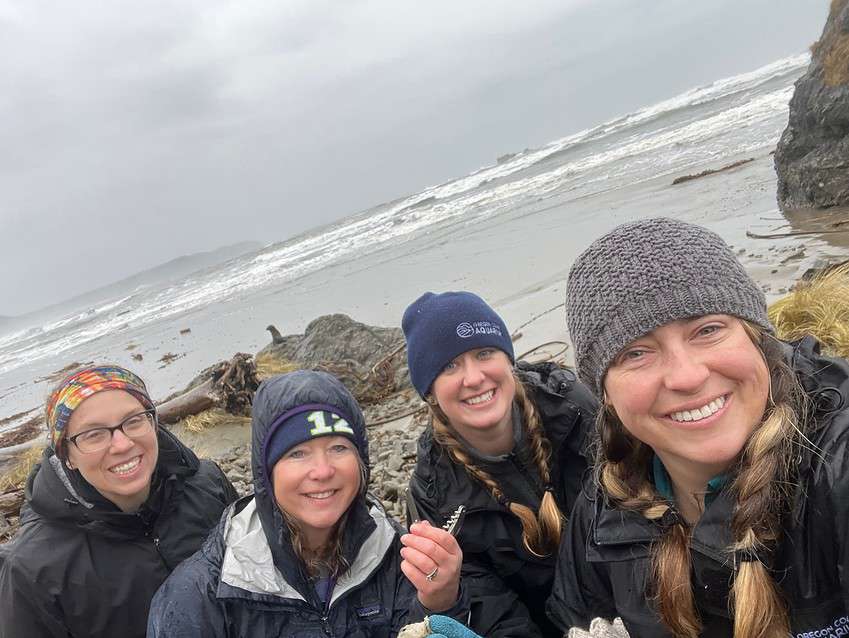Olympic National Park, Washington — A field excursion led by Seattle Aquarium researchers along the Olympic Peninsula quickly turned into a life-saving mission.
Seattle Aquarium’s Senior Conservation Research Manager Shawn Larson was leading a sea otter observation excursion alongside Research Scientist for Clean Seas Program Veronica Padula. The Oregon Coast Aquarium’s (OCAq) Curator of Marine Mammals Brittany Blades and Senior Mammologist Ashley Griffin-Stence were participating in the field work when they heard distressed cries nearby. Just up the beach was a young northern fur seal with material wrapped tightly around its neck.
“In my 22 years of doing this work, I’ve never seen a northern fur seal pup on the beach,” Dr. Shawn Larson said.
“You could tell that something was wrong with it,” Veronica Padula began. “It looked like it was struggling somehow.”
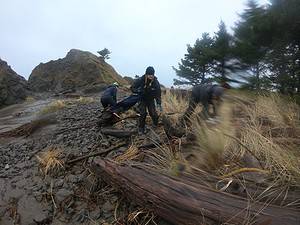
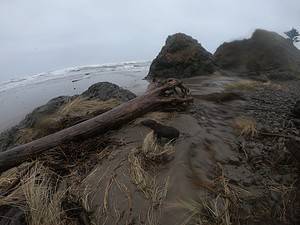
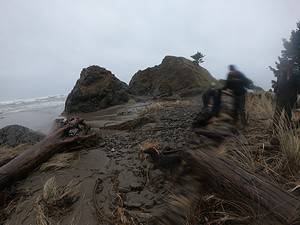
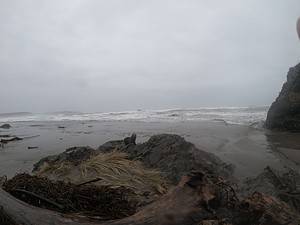
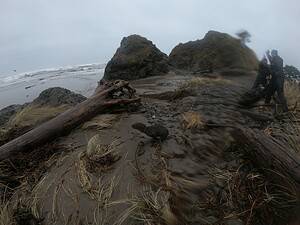
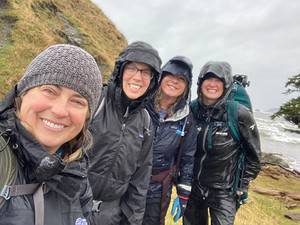

The team immediately jumped into action, following standard protocol and contacting the National Oceanic and Atmospheric Administration (NOAA) West Coast Marine Mammal Stranding Network. Typically, when a marine mammal is reported stranded or injured, a Network partner responds to assess the animal and determine the best course of action. However, this was an atypical situation. The team was in a remote location on Washington’s Olympic Peninsula, and Network responders would take many hours to arrive on scene.
Dr. Larson says the remoteness of the area wasn’t lost on her. “This time of year, no one goes down there. No one else would have known what to do in that situation.”
The team of marine mammal experts received authorization from NOAA officials to assist the fur seal. Dr. Larson used a pair of scissors from a first-aid kit to cut the restriction from around the fur seal’s neck, while Blades restrained its head and Griffin-Stence restrained its body.
The culprit was an elastic piece of cloth, similar to the wrist opening of a garden glove. Once the fur seal was released, it quickly made its way towards the water.
“It was that Northern fur seal’s lucky day,” said Blades, “to strand behind four marine mammal biologists specifically experienced with handling and rehabilitating entangled fur seals.”
Northern fur seals are found along the north Pacific Ocean. This species spends a majority of its time at sea, coming to land just for the summer breeding season, or if they are injured or ill. The northern fur seal is listed as vulnerable by the International Union for Conservation of Nature.
If you see a marine mammal that needs help on the beach, contact the National Oceanic and Atmospheric Administration Fisheries marine mammal stranding network to report details by calling 1-866-767-6114. Do not approach a marine mammal or allow your pet to go near it. Besides the risk of spreading diseases, you could unintentionally hurt an animal’s chances of being able to recover and return to its habitat.
 About Oregon Coast Aquarium
About Oregon Coast Aquarium
Since opening in 1992, the Oregon Coast Aquarium has been a premier attraction on Oregon’s central coast and an enduring advocate for the health of our ocean. For over three decades this 501(c)3 non-profit organization has supported marine wildlife and fostered environmental stewardship through its education programs, community partnerships, and rehabilitation efforts. Accredited by the Association of Zoos & Aquariums, the Oregon Coast Aquarium is consistently ranked as one of the top 10 aquariums in the U.S., providing visitors with opportunities to connect with 15,000 animals spanning 300 different species. The Oregon Coast Aquarium is located at 2820 S.E. Ferry Slip Rd., Newport, OR. aquarium.org, 541-867-3474. Follow us on Facebook or Twitter for the latest updates.

